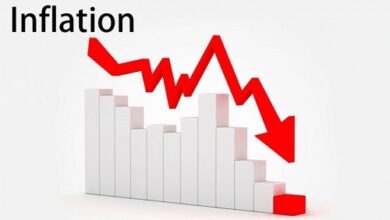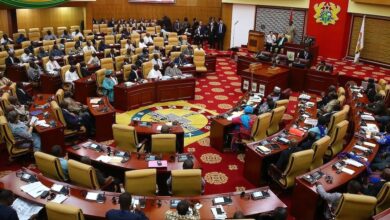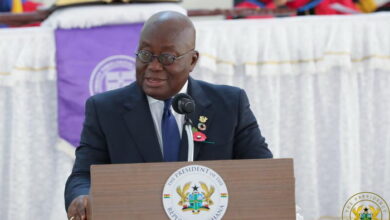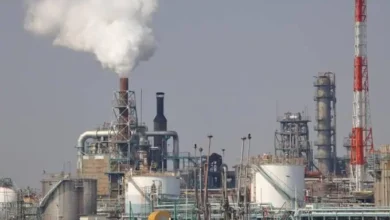Financial Sector Stakeholders Optimistic Following Moody’s Credit Rating Upgrade
Financial Sector Stakeholders Optimistic Following Moody’s Credit Rating Upgrade
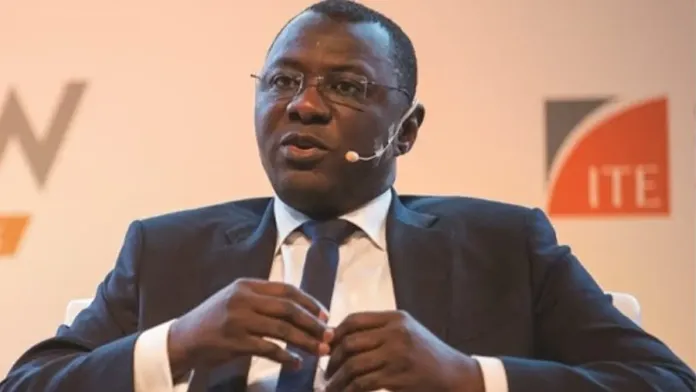
- Financial sector stakeholders are expressing optimism after Moody’s recent upgrade
- This marks Ghana’s first rating upgrade since February 2022
- Amin Adam praised the upgrade as a significant milestone
Financial sector stakeholders are expressing optimism after Moody’s recent upgrade of Ghana’s credit rating, seeing it as a promising sign for the country’s economic recovery and growth potential.
On October 11, 2024, Moody’s Ratings elevated Ghana’s long-term local and foreign currency issuer ratings from Caa3 to Caa2 and from Ca to Caa2, respectively, while also shifting the outlook from stable to positive.
This marks Ghana’s first rating upgrade since February 2022, signaling a potential turning point in its financial standing.
Finance Minister Dr. Mohammed Amin Adam praised the upgrade as a significant milestone in Ghana’s economic journey.
He noted that this development, alongside Fitch Ratings’ recent favorable assessment, highlights the success of Ghana’s comprehensive debt treatment and ongoing economic reforms.
Dr. Adam explained, “This upgrade resulted from the completion of Ghana’s comprehensive debt treatment, which has provided meaningful relief to government finances.
As the first substantive upgrade on our credit rating, it follows Fitch Ratings’ assignment of ‘CCC+’ to Ghana’s new USD bonds and an upgrade of the Long-Term Local-Currency Issuer Default Rating from ‘CCC’ to ‘CCC+’.”
He highlighted the impressive rebound of Ghana’s economy, stating, “Ghana’s growth has rebounded significantly this year, increasing from 4.7% in the first quarter to 6.9% in the second quarter, exceeding growth projections post-debt restructuring. Inflation has halved since the pre-debt restructuring period, and our debt is on a declining trajectory, with a reduction of nearly 7 percentage points of GDP.”
Dr. Adam reassured the public of the government’s ongoing commitment to reform, stating, “The lessons learned from the challenging debt restructuring process, along with the sacrifices made by all Ghanaians, continue to motivate us to consolidate our gains through a robust reform agenda focused on fiscal discipline, institutional improvements, and fostering growth through small and medium-sized enterprises.”
Moody’s cited Ghana’s extensive debt treatment as the primary factor behind its upgrade, which has alleviated the government’s financial burden. The rating agency noted, “Debt restructuring, along with the debt service moratorium during negotiations, has reduced the government’s debt burden from a peak of 93% of GDP in 2022 to an expected 81% in 2024.” The positive outlook indicates potential for further improvement, with Moody’s stating, “If the identified risk factors diminish, Ghana’s rating could improve further.”
Financial analysts have also shared their thoughts on the implications of this upgrade. Kofi Kyei Busia, an analyst at the Young Investors Network (YIN), expressed cautious optimism about potential upgrades from other agencies reflecting Ghana’s improved financial standing. He remarked, “Moody’s upgrade is a significant step forward, and I believe other rating agencies will follow suit soon. A country’s credit rating reflects its perceived ability to service debt, and with Ghana showing fiscal discipline and progress in debt restructuring, we can expect similar actions from Fitch, Standard & Poor’s, and others. This situation transcends mere numbers; it’s about rebuilding trust that Ghana is on a path to recovery and financial responsibility.”
However, he cautioned that while this upgrade is promising, careful management is essential to translate this positive outlook into tangible market benefits, such as renewed investor interest, lower borrowing costs, and better access to capital. “Investors will be looking for consistent fiscal reform, inflation control, and sustained economic growth. If Ghana can maintain this momentum, I am optimistic about increased interest in our market and more favorable economic conditions.”
By the end of August 2024, the Bank of Ghana had built sufficient reserves—reported at $7.5 billion, equivalent to 3.4 months of import cover—to support the government’s debt servicing obligations. Despite the positive development of the upgrade, challenges remain.
Moody’s has cautioned about potential risks, stating, “The resumption of debt service payments, fiscal risks leading up to the December elections, potential negative pressure on the currency, and reliance on expensive short-term debt pose elevated liquidity risks that could constrain the rating.”
The upgrade comes as Ghana continues to implement reforms under its IMF program, which is expected to further enhance policy credibility and improve access to low-cost funding from official sources.


